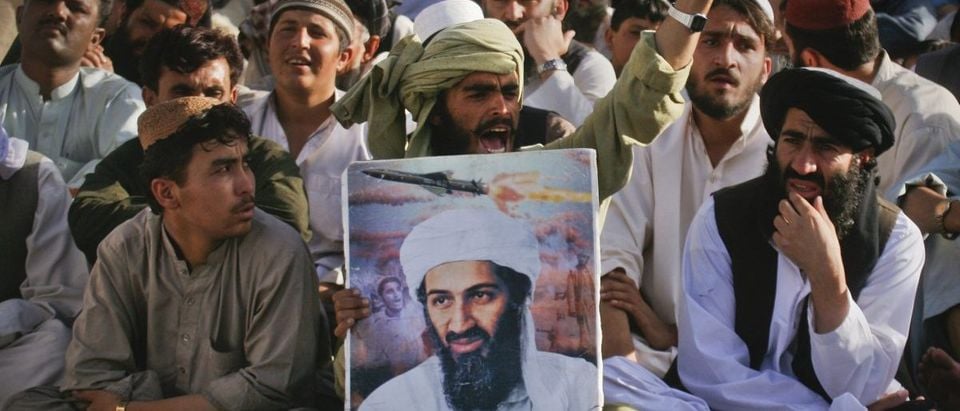Osama Bin-Laden declared war on the U.S. from a remote province in Afghanistan on August 23, 1996.
Nobody much cared what Bin-Laden had to say, until two years later when simultaneous explosions hit the U.S. embassies in Kenya and Tanzania on August 7, 1998.
The bombings killed 224 people, including 12 American citizens. Days after the bombing, “there was a high degree of confidence” Bin-Laden’s al-Qaida was responsible for the attacks, according to Steve Coll’s Pulitzer Prize winning book, “Ghost War’s,” a exploration of U.S. policy leading up to 9/11.
With responsibility established, then-U.S. President Bill Clinton’s national security team convened to draw up a U.S. response. Immediately, Clinton reportedly ruled out any attack on the Taliban government in Afghanistan for housing Bin-Laden. Clinton reportedly believed there was little appetite among the American people for war with Afghanistan, and that U.S. allies would not support him if he pursued such an action.
In the immediate aftermath of the attack, the fallout from Clinton’s affair with White House intern Monica Lewinsky increasingly dominated his political schedule. Ten days after the attack, Clinton sat with prosecutors to give testimony of his affair. The former president reportedly insisted to his national security team he would not let the media frenzy affect his decision making with respect to retaliation.
Former CIA Director George Tenet brought Clinton evidence of a Bin-Laden attended al-Qaida meeting set to take place on August 20, 1998, according to the 9/11 commission report. Clinton’s team looked to President Ronald Reagan’s 1986 strike on Tripoli for inspiration. Reagan greenlit airstrikes on Libya in retaliation for the Berlin Disco bombing targeting U.S. Service-members.
Clinton approved cruise missile strikes on Afghanistan and a compound in Sudan the U.S. government believed was an al-Qaida chemical weapons factory. “The strike’s purpose was to kill Bin Laden and his chief lieutenants,” the 9/11 Commission report states.
The cruise missile strikes killed nearly 20 people, “but probably missed Bin Laden by a few hours.” Several of the cruise missiles reportedly did not even detonate. Russian intelligence sources alleged that Bin-Laden sold the undetonated missiles to the Chinese for more than $10 million, according to Lawrence Wright’s Pulitzer prize winning book, “The Looming Tower: Al-Qaida and the Road To 9/11.”
The failed strikes “may have sharpened Afghan animosity towards Washington and even strengthened the Taliban-al-Qaeda alliance,” a declassified Department of State cable argues in October 1998. A declassified after-action report from 1999 further notes that the failed cruise strike “may have caused long-term political harm to U.S. national security and counterterrorism interests.”
Clinton later rejected four proposals between 1998-1999 to kill or capture Bin-Laden, according the 9/11 Commission report. Clinton and his team reportedly considered the costs of failure could include “millions of dollars down the drain; a shoot-out that could be seen as an assassination; and, if there were repercussions in Pakistan, perhaps a coup.”
Bin-Laden, alive and boastful that he had been missed by U.S. missiles, set his sights on an American target within his reach. Two al-Qaida terrorists packed hundreds of pounds of explosives on a small boat in the Gulf of Aden in Yemen, and blew themselves up next to the USS Cole on October 12, 2000. The explosion killed 17 U.S. sailors on board.
“We will find you and justice will prevail,” Clinton vowed in the aftermath of the attack.
Two months after the attack, the CIA could offer only a “preliminary judgement” to Clinton that Bin-Laden and al-Qaida were responsible for the attack, the 9/11 commission report notes. Clinton believed he could not launch an attack on Afghanistan based on the preliminary judgement alone, and left the response to the incoming Bush administration.
“You had a billion dollar warship nearly sank, with 17 Americans killed. You had the United States not doing anything publicly about it. Bin Laden and al-Qaida were able to issue a series of videotapes crowing about their achievement. So, if I’m an impressionable young man who aspires to conduct jihad, and I see what al-Qaida did and they weren’t held responsible, hell yeah, I’m going to go toward them. And that, in effect, is what happened,” Clinton’s director of transnational threats Roger Cressey told NBCNews in 2010.
“I nearly got him. And I could have killed him, but I would have had to destroy a little town called Kandahar in Afghanistan and kill 300 innocent women and children, and then I would have been no better than him,” Clinton said of Bin-Laden on September 10, 2001.
All content created by the Daily Caller News Foundation, an independent and nonpartisan newswire service, is available without charge to any legitimate news publisher that can provide a large audience. All republished articles must include our logo, our reporter’s byline and their DCNF affiliation. For any questions about our guidelines or partnering with us, please contact licensing@dailycallernewsfoundation.org.


